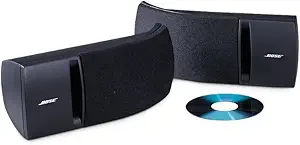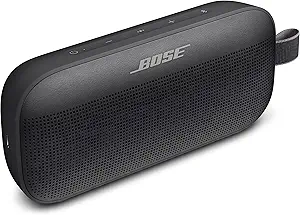In the quest for unparalleled audio immersion, the choice of speakers holds the key to unlocking a world of sonic excellence. Klipsch and Bose, esteemed names in the realm of audio technology, offer an enticing array of speaker options, each embodying a unique blend of craftsmanship, innovation, and sonic performance. This article embarks on a journey to unravel the distinctive features, performance characteristics, and philosophies of Klipsch and Bose speakers, providing valuable insights to aid enthusiasts in their pursuit of auditory bliss.
Brand Overview
Klipsch, a venerable name in audio engineering, has garnered acclaim for its commitment to delivering dynamic, lifelike sound experiences. Klipsch speakers are revered for their signature horn-loaded technology, which enhances efficiency and delivers unparalleled clarity and detail. Whether it's the immersive soundstage of their home theater systems or the precision of their bookshelf speakers, Klipsch excels in reproducing audio with power, accuracy, and emotion. Leveraging premium materials, proprietary driver designs, and meticulous craftsmanship, Klipsch speakers offer a captivating auditory journey that transports listeners into the heart of the music or movie soundtrack. Moreover, Klipsch's dedication to timeless design aesthetics ensures that their speakers not only deliver exceptional performance but also complement any living space with elegance and sophistication.
Bose, renowned for its pioneering approach to sound technology, has redefined the audio landscape with its commitment to spaciousness, clarity, and balance. Bose speakers are celebrated for their immersive sound signature, characterized by room-filling audio that envelops listeners in a captivating auditory experience. Whether it's the portability of their wireless speakers or the sophistication of their home theater systems, Bose excels in creating audio solutions that resonate with enthusiasts and casual listeners alike. Leveraging advanced technologies such as waveguide technology, adaptive audio adjustment, and noise-canceling features, Bose speakers deliver a level of engagement and immersion that immerses listeners in the essence of the music or movie soundtrack. Furthermore, Bose's dedication to user experience is evident in features such as intuitive controls, seamless connectivity options, and elegant designs, ensuring a hassle-free and enjoyable listening experience for users.
Key Features Comparison
Durability and warranty
Klipsch Speakers and Bose Speakers are two renowned brands in the audio equipment industry, each with their unique strengths and offerings in terms of durability and warranty. Klipsch Speakers are known for their robust build quality and long-lasting durability. The brand uses high-quality materials in their construction, such as MDF wood for the cabinets and aluminum for the drivers, which contribute to their longevity. Klipsch offers a 5-year warranty on passive speakers and a 1-year warranty on powered speakers, which is quite competitive in the market. However, some users have reported issues with the durability of the rubber surrounds on certain models, which could potentially affect the speaker's lifespan. On the other hand, Bose Speakers are also well-regarded for their durability, with a reputation for withstanding years of use without significant degradation in performance. Bose uses high-quality plastics and metals in their construction, which are resistant to wear and tear. In terms of warranty, Bose offers a standard 1-year warranty across most of its products, which is less than what Klipsch offers. However, Bose has a robust customer service reputation and is known for often going above and beyond to resolve any issues, even outside of the warranty period. Some users have reported that Bose speakers may not be as robust when exposed to harsh environmental conditions, such as extreme temperatures or humidity, compared to other brands.
Product Selection
Klipsch and Bose are two leading brands in the audio equipment industry, each offering a wide range of speakers to cater to different user needs. Klipsch speakers are known for their high-quality sound and the brand offers an extensive product selection, including floor standing speakers, soundbars, bookshelf speakers, and home theater systems. Their latest technology, Tractrix Horn technology, ensures high efficiency and improves detail and clarity. However, they are often larger and heavier, which might not be suitable for all spaces. On the other hand, Bose speakers are recognized for their compact design and advanced technologies. Bose offers a variety of speakers, including portable speakers, smart home speakers, and home theater systems. Their latest innovation, QuietPort technology, minimizes distortion and delivers a clean, deep bass. Bose speakers are generally more compact and lightweight, making them more suitable for smaller spaces. However, some users have reported that Bose speakers may lack the depth of sound compared to other brands, including Klipsch. Thus, the choice between Klipsch and Bose speakers largely depends on the individual's specific needs and preferences.
Availability
Klipsch and Bose are two prominent brands in the audio equipment industry, each offering a range of speakers that are readily available in the market. Klipsch speakers are known for their high-quality sound and are widely available in various online and offline stores. They offer a diverse range of speakers, including floor-standing, bookshelf, and home theater systems. The company also keeps up with the latest technologies, offering smart speakers integrated with Google Assistant and Amazon Alexa. However, availability might vary depending on the region and the specific model. On the other hand, Bose speakers are also easily accessible and are sold in many electronics stores and online platforms. Bose is renowned for its innovative technologies such as QuietPort technology and Direct/Reflecting series II technology. The brand offers a variety of speakers, including portable Bluetooth speakers, smart home speakers, and soundbars. Bose's availability is generally consistent globally, but certain exclusive models may not be available in all regions. Both brands are competitive in terms of availability, but the specific availability of certain models may depend on the region and the retailer.
Design/Look
Klipsch and Bose are both renowned brands in the audio equipment industry, each with its unique design aesthetics in their speaker range. Klipsch speakers are known for their distinctive, retro look with a touch of modernity. They often feature a wood grain vinyl finish that exudes a classic vibe, paired with copper spun woofers that add a contemporary touch. This combination of old and new is appealing to those who appreciate a vintage look but want the latest audio technology. However, this design may not blend seamlessly into all types of interior decor. On the other hand, Bose speakers are often characterized by their sleek, minimalist design. They usually come in neutral colors like black or white, and their smooth lines and compact size make them unobtrusive and versatile enough to fit in any room or setting. Bose's design philosophy leans more towards modernity and simplicity, which can be a pro for users who prefer a more contemporary look. However, some may find this design too simple or lacking in character compared to the more distinctive look of Klipsch speakers. Both brands have their unique design strengths, and the choice between the two often comes down to personal preference and the aesthetic of the space where the speakers will be placed.
Affordability
When it comes to the aspect of price, both Klipsch and Bose speakers offer a wide range of options, but they cater to different segments of the market. Klipsch speakers are generally more affordable, with their bookshelf speakers starting at around $150, and their floor-standing models starting at around $400. This makes Klipsch a popular choice for those seeking high-quality sound on a budget. The brand is known for using the latest audio technologies such as Tractrix Horn technology and Linear Travel Suspension tweeters to deliver superior sound quality. However, the lower price point may mean a compromise on some premium features and aesthetics. On the other hand, Bose speakers are positioned at the higher end of the price spectrum. Their bookshelf speakers start at around $200, and their floor-standing models can cost upwards of $1000. Bose is renowned for its innovative technologies like QuietPort technology and Direct/Reflecting series II design, which deliver a unique and immersive audio experience. The higher price tag of Bose speakers is justified by their sleek design, advanced features, and the brand's reputation for quality and durability. However, the premium pricing may not be within reach for all customers, making it less competitive in terms of affordability compared to brands like Klipsch.
Quality/Durability
Klipsch and Bose are among the most recognized brands in the audio equipment industry, particularly for their high-quality speakers. When it comes to durability, Klipsch speakers are renowned for their robust construction and long-lasting performance. They are made with high-quality materials, such as MDF cabinets and brushed polymer veneer baffle finishes, which contribute to their durability. Klipsch also incorporates the latest technology such as Tractrix Horn technology and Linear Travel Suspension (LTS) aluminum tweeter in their speakers to improve sound quality and longevity. However, they are often larger and heavier, which might not be suitable for all users. On the other hand, Bose speakers are known for their compact and sleek design without compromising durability. They employ robust materials and innovative technologies like the Articulated Array design and Stereo Everywhere technology to ensure longevity and consistent performance. Bose speakers are also designed to withstand various environmental conditions, making them suitable for both indoor and outdoor use. However, some users have reported issues with the longevity of Bose's sound quality over time, which may affect the overall durability of these speakers. Compared to Klipsch, Bose speakers are generally more portable but might not offer the same level of robustness and longevity.
Reputation
Klipsch and Bose are two of the most renowned brands in the audio equipment industry, each with its own unique reputation. Klipsch, founded in 1946, is known for its high-quality speakers that deliver powerful and detailed sound. The brand is often praised for its innovative technologies such as Tractrix Horn technology and Linear Travel Suspension (LTS) tweeters, which contribute to the exceptional sound clarity and accuracy. However, Klipsch speakers are generally on the more expensive side, which might not appeal to budget-conscious consumers. On the other hand, Bose, established in 1964, is reputed for its superior noise-cancellation technology and sleek design. Bose speakers are often recognized for their compact size and portability without compromising on sound quality. The brand's SoundLink Revolve and Home Speaker 500 are particularly popular for their 360-degree sound and smart home integration. However, some audiophiles argue that Bose speakers lack the depth and richness in sound compared to other high-end brands, including Klipsch. Despite this, Bose's reputation for user-friendly, innovative speakers continues to make it a strong competitor in the audio equipment market.
Sound Quality
When it comes to sound quality, both Klipsch and Bose speakers have their unique strengths. Klipsch speakers are renowned for their high sensitivity, which translates to excellent sound clarity and detail. They use patented horn-loaded technology that increases acoustic output while significantly reducing distortion. Klipsch's latest Reference Premiere series, for example, features a Hybrid Tractrix Horn that enhances high-frequency response and extension, while improving imaging and dynamics. The downside is that some users find the sound of Klipsch speakers to be too bright or harsh, especially at higher volumes. On the other hand, Bose speakers are known for their well-balanced, natural sound. They use proprietary technologies like Direct/Reflecting speaker technology and Stereo Everywhere technology to deliver a blend of direct and reflected sound, creating a more immersive listening experience. The latest Bose Smart Speakers also come with built-in voice assistants and Wi-Fi music streaming capabilities. However, some audiophiles argue that Bose speakers lack the depth and detail in sound that some other brands, like Klipsch, can provide. They also tend to be more expensive than other brands offering similar sound quality.
Conclusion
When it comes to audio equipment, both Klipsch and Bose speakers are renowned for their exceptional sound quality and advanced technology. Klipsch Speakers are well-known for their unique horn-loaded technology, which allows for high efficiency and improved directivity. They often deliver a more dynamic sound, with a focus on detail and clarity. Bose, on the other hand, is recognized for its innovative sound technology such as the Direct/Reflecting series II speaker technology and the Stereo Everywhere speaker performance technology. These technologies are designed to deliver a balanced stereo sound over a wider area, unlike conventional home audio speakers that direct sound mostly in one direction. However, both brands have their pros and cons. Klipsch speakers are often praised for their powerful and detailed sound, but some users find them to be too bright or harsh at high volumes. Also, their design is more traditional, which may not appeal to everyone. On the other hand, Bose speakers are known for their compact size and sleek design, making them a more attractive option for those who prefer a modern aesthetic. They also offer a more balanced and neutral sound, but some audiophiles argue that they lack the detail and dynamism that Klipsch speakers provide. Comparatively, both brands hold their own against other competitors in the market, with their commitment to sound quality and technological innovation.




















